Patient Resources
Get Healthy!
Results for search "Brain".
Health Videos - 13
Study Finds Every Pregnancy Leaves a Unique Mark on the Brain
Researchers uncover links between pregnancy-related brain changes, mother-baby bonding, and maternal mental health.
Doctors Reconnect 2-Year-Old’s Head to His Spine — Giving His Family a Holiday Miracle
After a devastating crash severed his spine, two-year-old Oliver Staub was not expected to survive. Groundbreaking surgeries at the University of Chicago Medicine helped him begin breathing and moving again, defying all odds.
Cavities + Gum Disease = Brain Risk?
New research links cavities and gum disease to an increased risk of stroke and possible white matter abnormalities in the brain.
Surprising Surge in Memory Struggles Among U.S. Adults Under 40
"Challenges with memory and thinking have emerged as a leading health issue reported by U.S. adults," especially those under 40, according to the author of a new study in the journal Neurology.
Soccer Headers May Affect Brain Structure and Memory
New research links frequent soccer heading with changes deep within the folds of the brain -- in an area involved in thinking and memory.
Insomnia May Speed Up Brain Aging and Dementia Risk
A new study suggests chronic insomnia may be an early warning sign or contributor to cognitive decline.
A Usually “Harmless Virus” May Trigger or Contribute to Parkinson’s Disease
A new study out of Northwestern Medicine finds evidence of the human pegivirus in the brains of people with Parkinson’s disease, but not in the brains of people without the neurological condition.
Experimental Drug Shows Promise in Slowing Disability from Multiple Sclerosis
Results of a phase 3 clinical trial show an experimental drug called tolebrutinib can delay disability in patients with non-relapsing secondary progressive multiple sclerosis.
New Blood Test Helps Diagnose and Track Alzheimer’s Progression
A simple blood test can help diagnose Alzheimer’s and accurately distinguish between early- and later-stage disease, a new study finds.
Keeping Your Bad Cholesterol in Check Protects You from Dementia, New Study Finds
People with low LDL cholesterol levels are much less likely to be diagnosed with dementia and Alzheimer’s disease, according to new research.
Common Sugar Substitute May Actually Increase Your Appetite
A new study finds sucralose, the primary sweetener in Splenda, changes brain activity related to hunger. Researchers say the results could be stronger cravings.
Popular ADHD TikToks Are Full of Misinformation About Symptoms, New Study Finds
Clinical psychologists reviewed 100 ADHD TikToks and found that fewer than half of their claims about symptoms align with clinical guidelines for diagnosing the condition.
Sleep Apnea May Increase the Risk of Parkinson’s Disease, Preliminary New Study Finds
Patients with obstructive sleep apnea may have higher odds of developing Parkinson’s disease, but researchers say early CPAP treatment may lower the risk.
Health News Results - 454
Study Suggests One Common Amino Acid May Affect How Long Men Live
- HealthDay Staff HealthDay Reporter
- February 27, 2026
- Full Page
A large new study suggests that higher levels of a common amino acid called tyrosine may be linked to a shorter lifespan in men.
The research, published recently in the journal Aging-US, examined whether...
Pregnancy Physically Alters A Woman's Brain – And A Second Pregnancy Even Moreso, Researchers Report
- Dennis Thompson HealthDay Reporter
- February 23, 2026
- Full Page
Pregnancy causes many profound changes to a woman’s body — and, it seems, her brain, according to a new study.
Pregnancy physically alters a woman’s brain, with a second pregnancy bringing even more profound effects, researchers reported Feb. 19 in the ...
Brain-Training Game Linked To Lower Dementia Risk Decades Later
- I. Edwards HealthDay Reporter
- February 10, 2026
- Full Page
Imagine you’re driving down the street when, out of nowhere, a skateboarder rolls into your path.
You’re looking straight ahead, but can your brain spot the movement in your side vision fast enough for you to hit the brakes?
That split-second moment dep...
Common Parasite Hiding in Many People Is More Complex Than Scientists Thought
- I. Edwards HealthDay Reporter
- January 29, 2026
- Full Page
A parasite that lives inside as many as 1 in 3 people worldwide may be much harder to treat than once believed, according to new research from the University of California, Riverside.
Different Types of Brain Tumors: What They Are, How They Present and What To Expect
- Paul A. Gardner, MD, and Douglas Kondziolka, MD HealthDay Reporters
- January 23, 2026
- Full Page
Brain tumors are abnormal growths of cells in or around the brain. They can be primary (originating in the brain) or secondary (metastatic, spreading to the brain from cancer elsewhere).
They can also originate from the structures around the brain, like the dura (brain...
Study Finds Human Language Processing Mirrors How AI Understands Words
- I. Edwards HealthDay Reporter
- January 22, 2026
- Full Page
The human brain may understand spoken language in a way that is surprisingly similar to how artificial intelligence (AI) processes words, a new study suggests.
By tracking brain activity as people listened to a spoken story, researchers found that the brain builds meanin...
Why Your Brain Drifts After a Bad Night’s Sleep, Scientists Explain
- I. Edwards HealthDay Reporter
- January 21, 2026
- Full Page
Ever notice how hard it is to stay sharp after a rough night of sleep?
A recent study published in the journal Nature Neuroscience points to a surprising reason why: The brain may briefly shi...
New Study Explains Why Brains Process Information at Different Speeds
- I. Edwards HealthDay Reporter
- January 5, 2026
- Full Page
The human brain is always working, reacting in a split second to dangerous events while slowly making sense of meaning, memories and decisions.
A new study from Rutgers Health explains how the brain pulls these fast and slow signals together to support thinking and behav...
Why Many Americans Will Pay More Just to Avoid Negotiating
- I. Edwards HealthDay Reporter
- January 5, 2026
- Full Page
Many Americans would rather pay more than negotiate, and new research suggests that’s exactly why “no-haggle” pricing works so well.
In five studies, researchers found that people avoid negotiating far more often than expected, even when cash is on the ...
Internal Body Clock Linked To Dementia Risk
- Dennis Thompson HealthDay Reporter
- January 2, 2026
- Full Page
Sleep problems might be an early warning sign of dementia, a new study says.
Circadian rhythms that are weaker and more fragmented are tied to an increased risk of dementia, researchers reported Dec. 29 in the journal
A Lifestyle Rx For Keeping Your Brain Young
- Carole Tanzer Miller HealthDay Reporter
- December 21, 2025
- Full Page
Think the good thoughts.
Manage stress.
Get your Zzzzzs.
And build a strong social support system.
New research shows that these factors — all of which are within your control — are powerful anti-aging tools.
"You can...
Research Shows Imagining Positive Encounters Shapes Real-Life Feelings
- I. Edwards HealthDay Reporter
- December 11, 2025
- Full Page
Thinking about a positive moment with someone, even if it never happened, may actually make you like them more, new research shows.
A study published Dec. 10 in Nature Communications found...
Your Brain Changes in Stages as You Age, Study Finds
- I. Edwards HealthDay Reporter
- November 26, 2025
- Full Page
From childhood to old age, the human brain doesn’t just slowly fade or steadily grow, it changes in stages.
A new study suggests our brains go through four major turning points that shape how we think, learn and connect.
Researchers said those shifts happen a...
Untreated Sleep Apnea Could Greatly Raise Odds for Parkinson's
- Ernie Mundell HealthDay Reporter
- November 25, 2025
- Full Page
Add one more malady to the potential risks from untreated sleep apnea: Parkinson’s disease.
A new study involving 11 million U.S. veterans finds that a per...
Traces Of Bacteria Found In Brain Tumors
- Dennis Thompson HealthDay Reporter
- November 18, 2025
- Full Page
The brain is thought to be a sterile environment, free from germs.
But unexpected deposits of bacteria have been found inside brain tumors, apparently affecting how the cancers grow and behave, a new study says.
“This work opens a new dimension in...
Can Music Protect Your Brain? Study Says It Might Help Prevent Dementia
- I. Edwards HealthDay Reporter
- November 14, 2025
- Full Page
Listening to your favorite singers may do more than lift your mood — it could also protect your brain.
A new study from Australian researchers found that older adults who regularly listened to music had a 39% lower risk of developing
Want a Healthier Smoothie? New Study Says Skip the Banana
- Carole Tanzer Miller HealthDay Reporter
- November 8, 2025
- Full Page
If a healthy slurp is your aim, skip the banana when you whip up a smoothie.
Researchers at the University of California-Davis found that adding banana may interfere with absorption of powerful compounds called flavanols, which are linked to brain and heart health.
How A Brain Pressure Disorder Causes Vision Loss — And Who Might Be Affected
- Dennis Thompson HealthDay Reporter
- October 30, 2025
- Full Page
Doctors think they’ve figured out a way to predict who might lose vision due to a high brain pressure disorder.
Idiopathic intracranial hypertension (IIH) occurs when there’s unexplained pressure buildup in the fluid that cushions the brain in the skull, rese...
What Kim Kardashian’s Diagnosis Reveals About Brain Aneurysms
- Deanna Neff HealthDay Reporter
- October 24, 2025
- Full Page
Reality TV star, actress and mom Kim Kardashian, 45, disclosed in the season premiere of “The Kardashians” that a small aneurysm was detected in her brain.
An aneurysm occurs when a blood vessel wall weakens and stretches, creating a balloon or bubble. While ...
Gum Disease May Raise Stroke Risk, Even Damage the Brain
- I. Edwards HealthDay Reporter
- October 23, 2025
- Full Page
If you need another reason to brush and floss, here it is: Research suggests keeping your mouth healthy might also protect your brain and heart.
Two new studies published Oct. 22 in Neurology Open Access linked gum disease and cavities to a higher risk of
FDA Clears New Blood Test to Help Rule Out Alzheimer’s Disease
- I. Edwards HealthDay Reporter
- October 15, 2025
- Full Page
The U.S. Food and Drug Administration (FDA) has cleared another blood test that could help doctors identify whether a patient’s memory problems are likely caused by
New Approach Targets Social Skills to Help Schizophrenia Patients Heal
- I. Edwards HealthDay Reporter
- October 12, 2025
- Full Page
A new study from Case Western Reserve University suggests a major shift in schizophrenia treatment: One that focuses on helping patients better interpret social cues.
“We’ve been treating schizophrenia with a one-size-fits-all approach for decades,”
Turns Out, There Are 5 Sleep Styles — And Each Affects Your Brain Differently
- I. Edwards HealthDay Reporter
- October 9, 2025
- Full Page
A new study suggests there’s more to sleep than how long you snooze each night. Your overall sleep pattern could shape your mood, brain function and even long-term health.
Researchers from Concordia University in Montreal identified five distinct sleep profiles tha...
Gene Therapy Slows Huntington’s Disease in Early Trial
- I. Edwards HealthDay Reporter
- September 26, 2025
- Full Page
A new gene therapy has shown promise in slowing the progression of Huntington’s disease, according to early trial results released Wednesday.
In a Phase 1/2 study, patients given a high dose of UniQure’s experimental the...
Skin-To-Skin 'Kangaroo' Care Boosts Preemies' Brain Development
- Dennis Thompson HealthDay Reporter
- September 25, 2025
- Full Page
Skin-to-skin contact might help kick-start brain development in preterm babies, a new study says.
Preemies born before 32 weeks showed stronger development in brain regions tied to emotion and stress regulation if they received more skin-to-skin contact, researchers repo...
Shunts Safe And Effective For Rare Brain Condition In Elderly, Clinical Trial Concludes
- Dennis Thompson HealthDay Reporter
- September 18, 2025
- Full Page
A simple shunt can restore walking ability and independence in elderly people with a rare brain condition, a major new clinical trial has found.
Implanting a shunt to drain excess cerebrospinal fluid significantly improved walking and mobility among seniors with idiopath...
Precise Brain Stimulation May Offer Faster Relief for Depression
- I. Edwards HealthDay Reporter
- September 12, 2025
- Full Page
A new type of noninvasive brain stimulation may help people with moderate to severe depression feel better faster than standard treatments, researchers in a new repo...
Cats Get Dementia Just Like People, Making Them a Potential Research Tool
- Carole Tanzer Miller HealthDay Reporter
- September 6, 2025
- Full Page
Just like their human counterparts, cats may act cranky or confused and have trouble sleeping as they age.
They may even yowl more than usual at night.
These, researchers say, are dementia-like behaviors that may owe to an accumulation of plaques in their bra...
Talk Therapy Alters Brain Structure, MRI Scans Show
- Dennis Thompson HealthDay Reporter
- August 27, 2025
- Full Page
Talk therapy has the power to alter a person’s physical brain structure, a new study shows.
Psychotherapy caused measurable changes in the brains of people with severe depression, MRI sc...
Brain Map Explains Phantom Limb Pain, Hints At Improved Prosthetics
- Dennis Thompson HealthDay Reporter
- August 25, 2025
- Full Page
“Phantom limb” pain has been a curious aftereffect of amputation, with people experiencing false sensations from a hand, arm or leg that is no longer there.
Researchers now think they know why phantom limb sensations occur.
It turns out that the brain m...
Pesticide Linked To Impaired Brain Development Among Kids
- Dennis Thompson HealthDay Reporter
- August 20, 2025
- Full Page
Exposure to a common pesticide during pregnancy can impair children’s brain development and motor function for years to come, a new study says.
The widely used pesticide chlorpyrifos...
New Brain Implant Could Let People Speak Just by Thinking Words
- I. Edwards HealthDay Reporter
- August 15, 2025
- Full Page
For the first time, scientists have created a brain implant that can “hear” and vocalize words a person is only imagining in their head.
The device, developed at Stanford University in California, could help people with...
Scalp Implant Improves Real-World Epilepsy Tracking
- Dennis Thompson HealthDay Reporter
- August 14, 2025
- Full Page
An under-the-scalp implant can improve monitoring of a person’s epilepsy, giving doctors data they need to improve control over seizures, a new pilot study says.
Epilepsy patients must now keep a diary to track their symptoms.
But these self-observations are ...
Tiny Traces of Lithium May Help Protect the Brain From Alzheimer’s
- I. Edwards HealthDay Reporter
- August 8, 2025
- Full Page
Tiny amounts of lithium — a natural metal — may help protect the brain from Alzheimer’s and signs of aging, new research...
Boy Dies From Brain-Eating Amoeba After Swimming in S.C. Lake
- HealthDay Reporter
- I. Edwards
- July 28, 2025
- Full Page
A 12-year-old South Carolina boy has died after being infected by a rare, brain-eating amoeba found in freshwater, his family’s lawyer said.
Middle school student Jaysen Carr died July 18 after swimming in Lake Murray, a large reservoir near Columbia, S.C., accordi...
The Many Faces of Parkinson’s: Symptoms, Treatment, and How To Manage It
- HealthDay Reporter
- Sneha Mantri, MD, MS, Chief Medical Officer at the Parkinson's Foundation
- July 24, 2025
- Full Page
About 90,000 people are diagnosed with Parkinson’s disease (PD) each year – one person every six minutes. While most people associate PD with tremors and stiffness, the condition is far more complex than these symptoms and may affect more than just movement.
...
Air Pollution Linked To Common Brain Tumors
- HealthDay Reporter
- Dennis Thompson
- July 10, 2025
- Full Page
Folks who breathe in more air pollution have a higher risk of developing a common non-cancerous brain tumor, a new study says.
Several different types of air pollutants, including particle pollution and nitrogen dioxide, appear to increase risk of meningiomas — tum...
How a Baby’s Brain Grows in the First Years of Life
- HealthDay Reporter
- I. Edwards
- June 21, 2025
- Full Page
The first two years of a baby’s life are critical for brain development, and how the brain grows during that time may help predict future learning, behavior and health.
That’s according to experts at Cedars-Sinai, who are working to better understand how brai...
Texas Woman Dies After Using Tap Water in Sinus Rinse
- HealthDay Reporter
- I. Edwards
- June 9, 2025
- Full Page
A Texas woman has died after using tap water in a sinus rinse, leading to a rare but often fatal brain infection, health officials report.
The 71-year-old woman died from a condition called primary amebic meningoencephalitis (PAM), which is caused by a microscopic organi...
Burning Out? An E-Tattoo Can Track Mental Strain
- HealthDay Reporter
- Dennis Thompson
- May 29, 2025
- Full Page
Ever thought so long and hard on a problem that your forehead grew hot, your brain became frazzled and your eyes grew bleary?
A new temporary tattoo can help measure that sort of mental strain, researchers report.
The wireless forehead electronic tattoo decodes bra...
Billy Joel Cancels Tour After Brain Condition Diagnosis
- HealthDay Reporter
- I. Edwards
- May 27, 2025
- Full Page
Music legend Billy Joel has canceled tour dates through July 2026 after being diagnosed with a brain condition called normal pressure hydrocephalus (NPH).
The 76-year-old singer announced Friday that his condition had worsened with recent performances, affecting his hear...
What You Should Know About ALS, Also Known as Lou Gehrig’s Disease
- HealthDay Reporter
- Brian Lin, PhD, Research Portfolio Director at the Muscular Dystrophy Association (MDA)
- May 3, 2025
- Full Page
Amyotrophic lateral sclerosis (ALS) – known as Lou Gehrig’s Disease based on the iconic 1930s New York Yankee baseball player – is a progressive neurodegenerative disease that affects thousands of Americans every year. ALS remains one of the most complex and ...
Child Concussion: What To Know If Your Child Takes a Blow To the Head
- HealthDay Reporter
- Jeffrey Lo, MD, Attending Physician, Orthopedics and Sports Medicine Department, Boston Children's Hospital
- April 20, 2025
- Full Page
When a child tumbles to the floor from a blow to the head, a parent's inner alarms should sound. The child may have a brain injury.
Here's what parents need to know:
What is a concussion?
A concussion is a mild traumatic brain injury (T...
Two Deaths in Oregon County Linked to Fatal Brain Disorder
- HealthDay Reporter
- I. Edwards
- April 14, 2025
- Full Page
Health officials in Hood River County, Oregon, are investigating three cases of a rare and fatal brain disease known as Creutzfeldt-Jakob disease (CJD).
Two people in the county, which has a population of about 24,000, have died from the illness, and a third case i...
How Savvy Habits May Help Head Off Dementia
- HealthDay Reporter
- Carole Tanzer Miller
- April 12, 2025
- Full Page
From slurping daily spoonfuls of fish oil to giving up alcohol, lifting weights and playing word games, older Americans think just about anything that might keep their brains sharp is worth a try.
After all, the risk of dementia -- a loss of memory, problem-solving and t...
Common Chemicals in Plastics May Harm Baby Brain Development
- HealthDay Reporter
- I. Edwards
- April 4, 2025
- Full Page
Common chemicals used in plastic and personal care products may interfere with brain development in babies, a new study says.
Phthalates are found in many everyday items, like food packaging, shampoo, toys and vinyl flooring.
They help make plastics soft and carry ...
Stroke Risk From Neck Artery Tears Is Rising Fast
- HealthDay Reporter
- Dennis Thompson
- April 3, 2025
- Full Page
Strokes caused by an artery tear are landing five times as many Americans in the hospital these days, a new study says.
Cervical artery dissection involves a small tear in the inner lining of an artery in the neck that supplies blood to the brain.
Brain Implant Lets Woman Talk After 18 Years of Silence Due to Stroke
- HealthDay Reporter
- I. Edwards
- April 1, 2025
- Full Page
For nearly two decades, a stroke had left a woman unable to speak -- until now.
Thanks to a new brain implant, her thoughts are being turned into real-time speech, giving her a voice again for the first time in 18 years.
The device was tested on a 47-year-old...
Brain Tumors In Firefighters Linked To Flame Retardant Chemical
- HealthDay Reporter
- Dennis Thompson
- March 11, 2025
- Full Page
Firefighters might face a higher risk of brain cancers caused by exposure to chemicals in fire extinguishers, a new small-scale study says.
Veteran firefighters appear to ...
Severe Flu Season Raises Concerns About Brain Complications in Kids
- HealthDay Reporter
- India Edwards
- February 28, 2025
- Full Page
As this year’s severe flu season rages across the country, federal health officials are investigating a rise in rare but life-threatening brain complications in children.
Th...

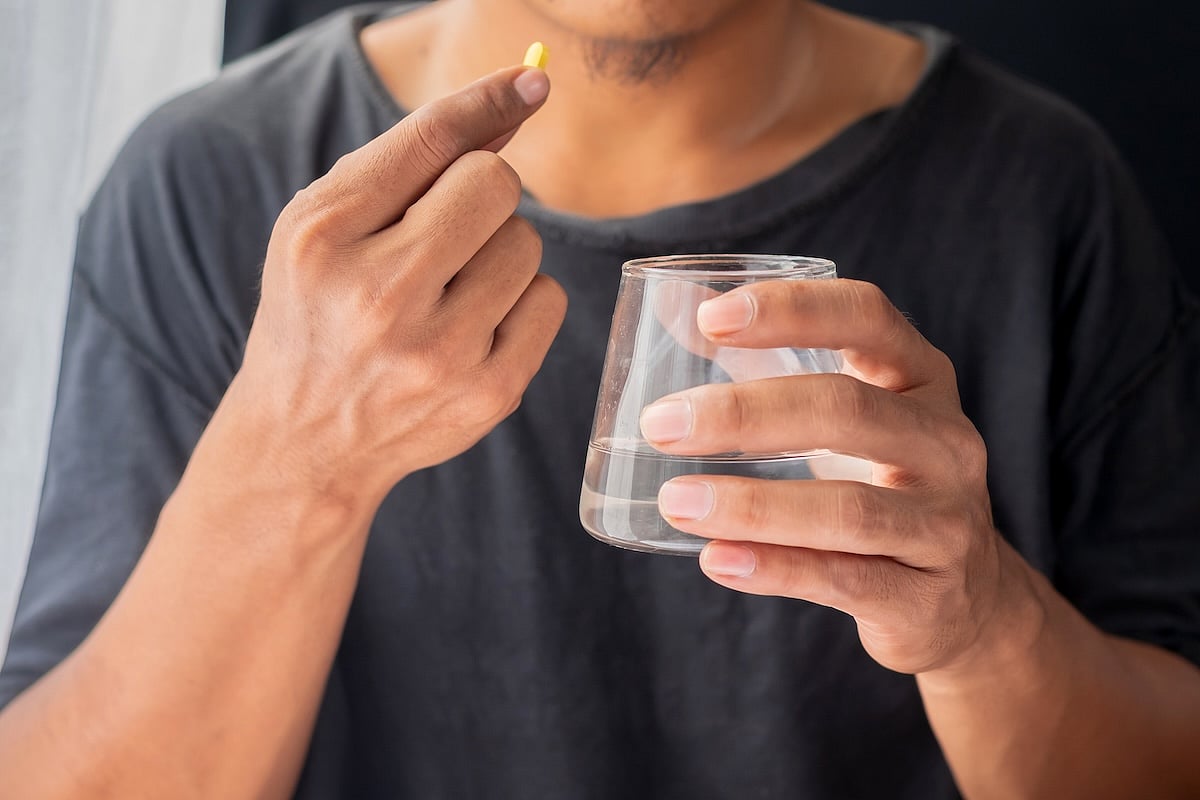



.jpg?w=1920&h=1080&mode=crop&crop=focalpoint)
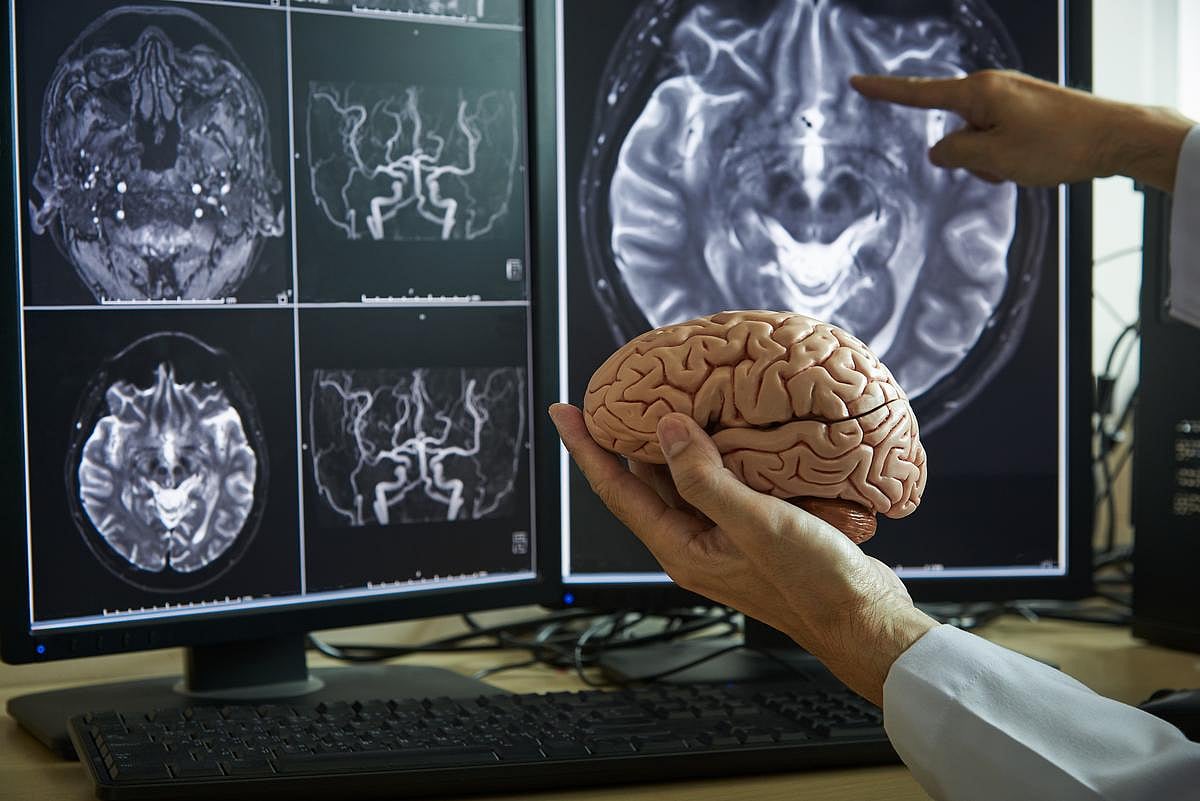






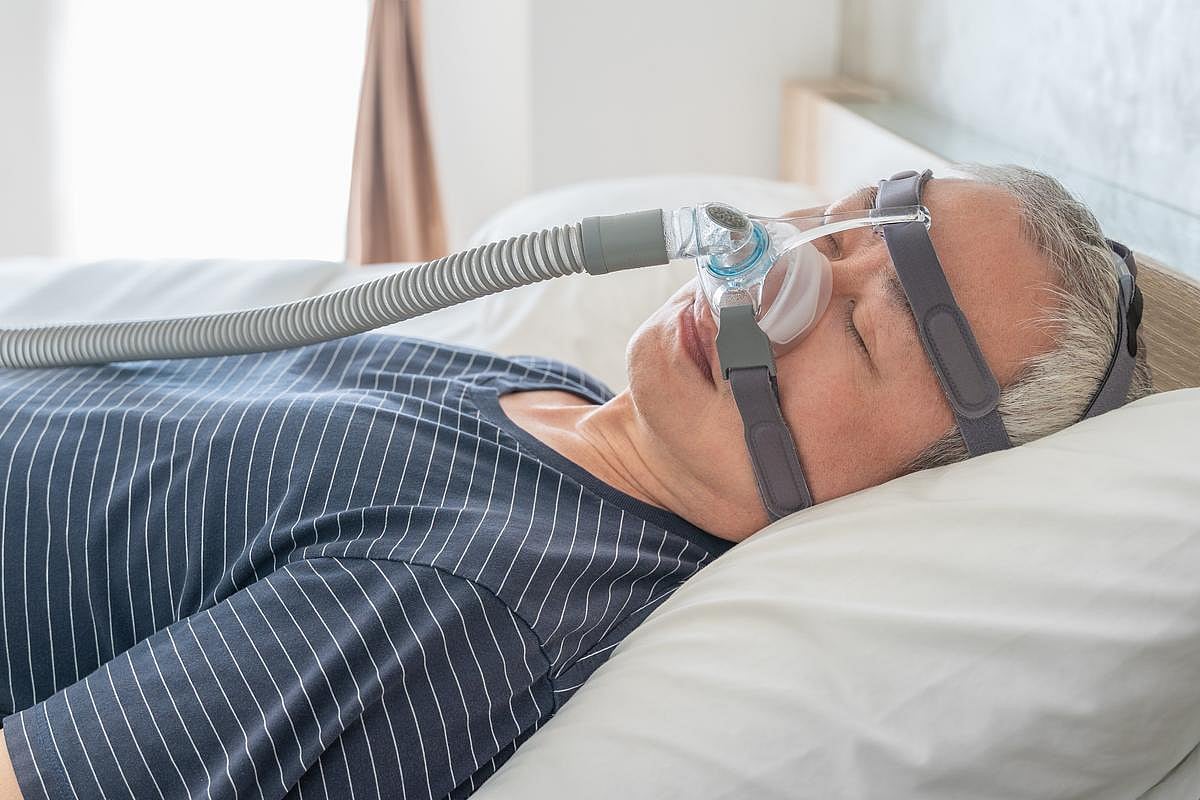
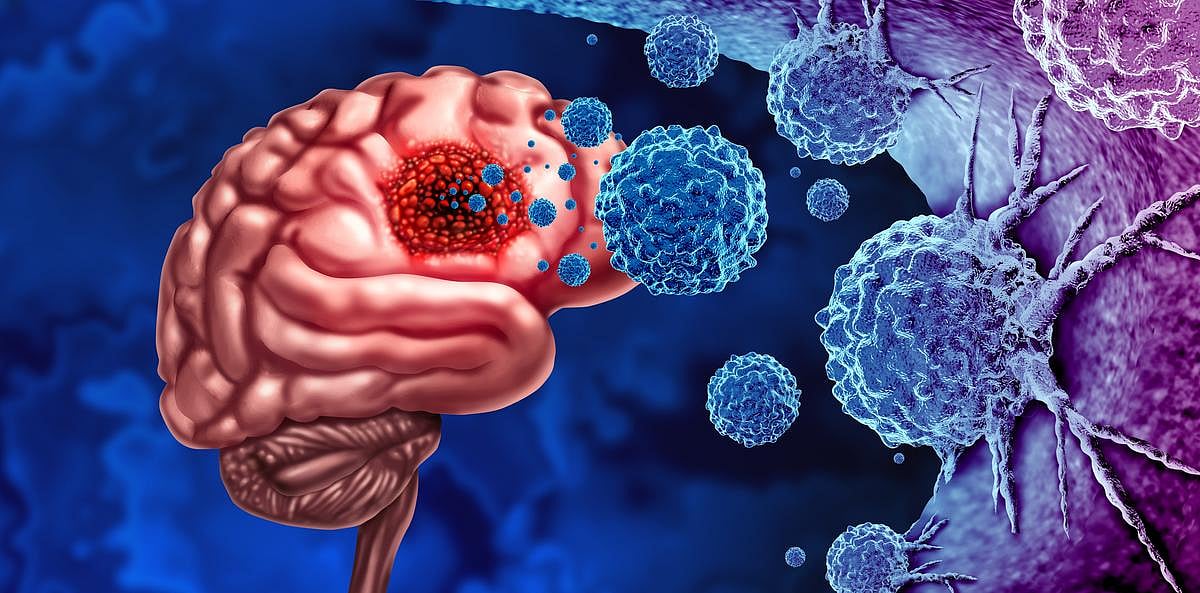



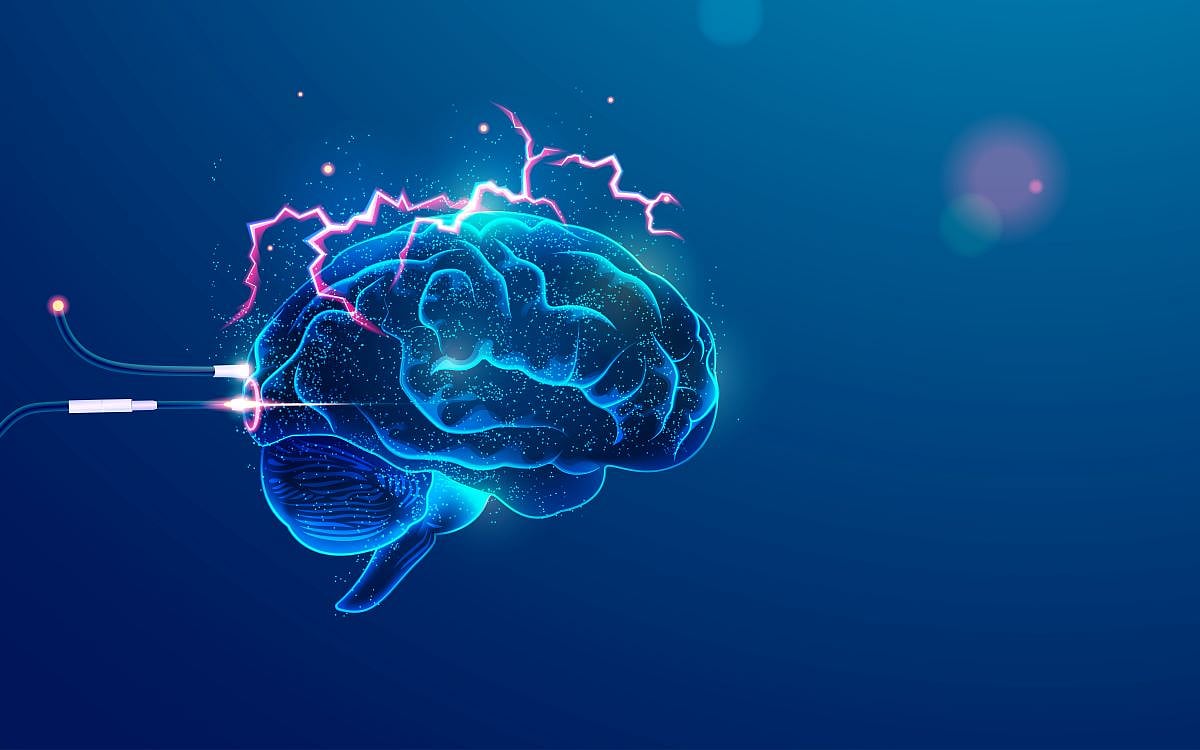
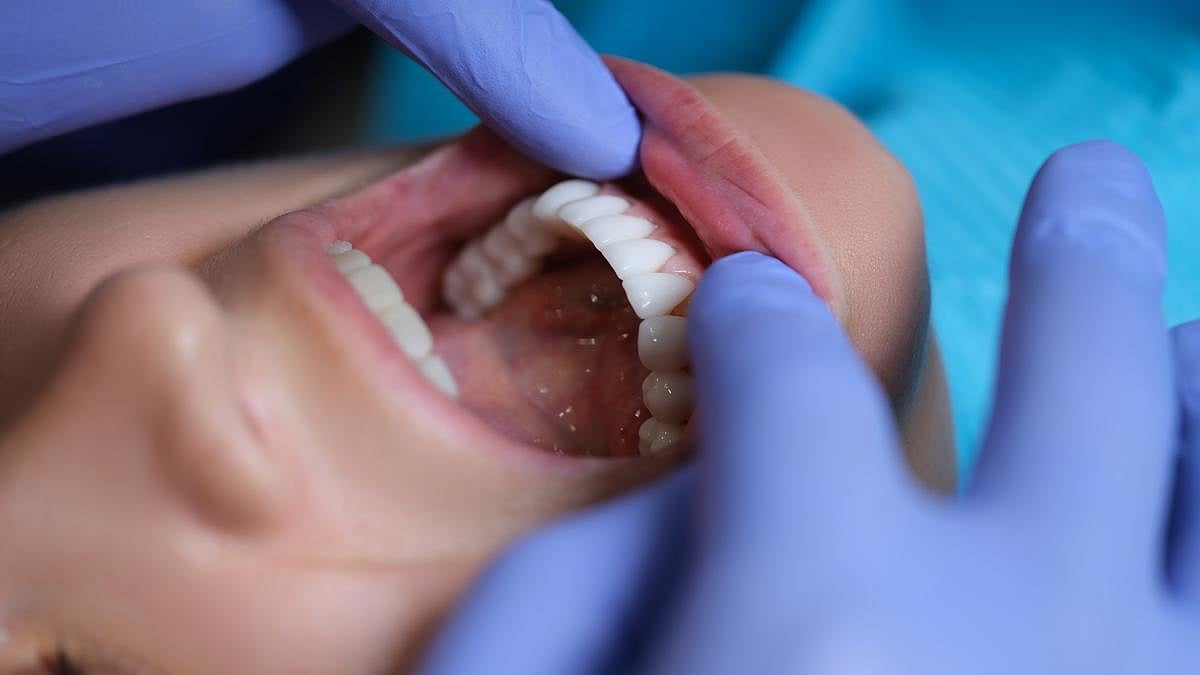



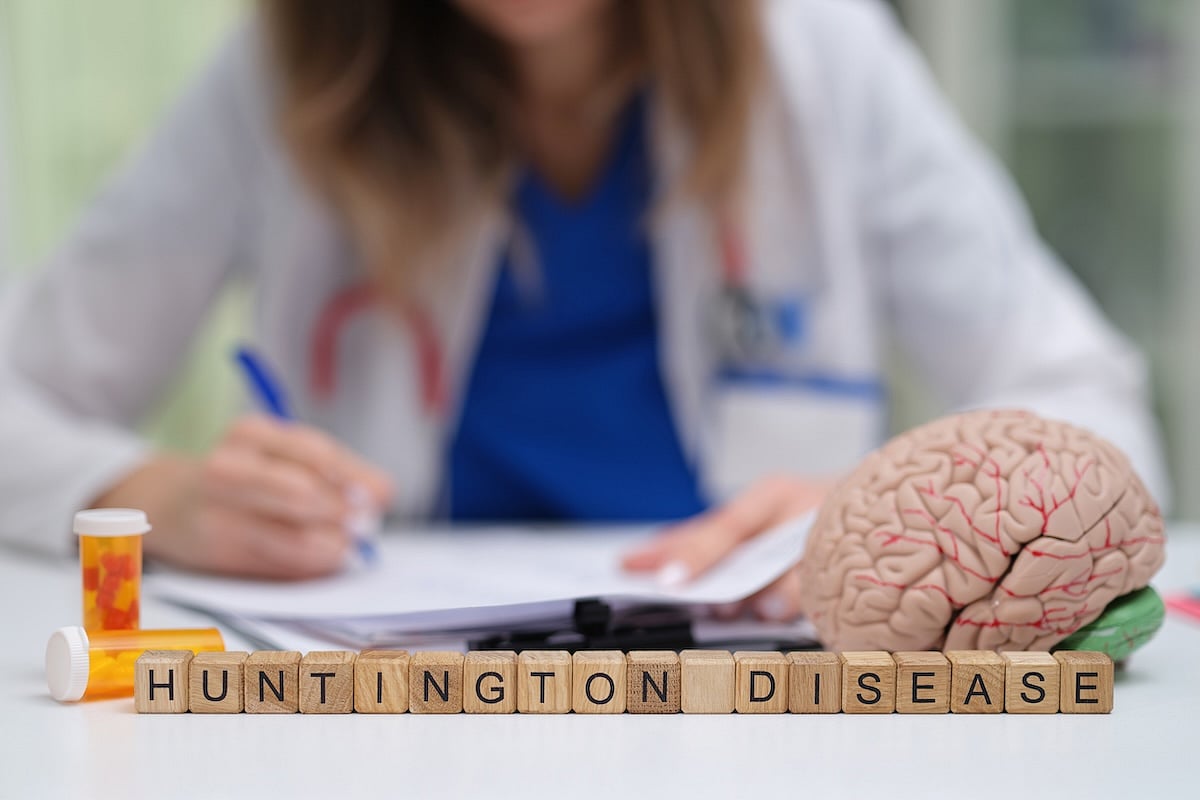






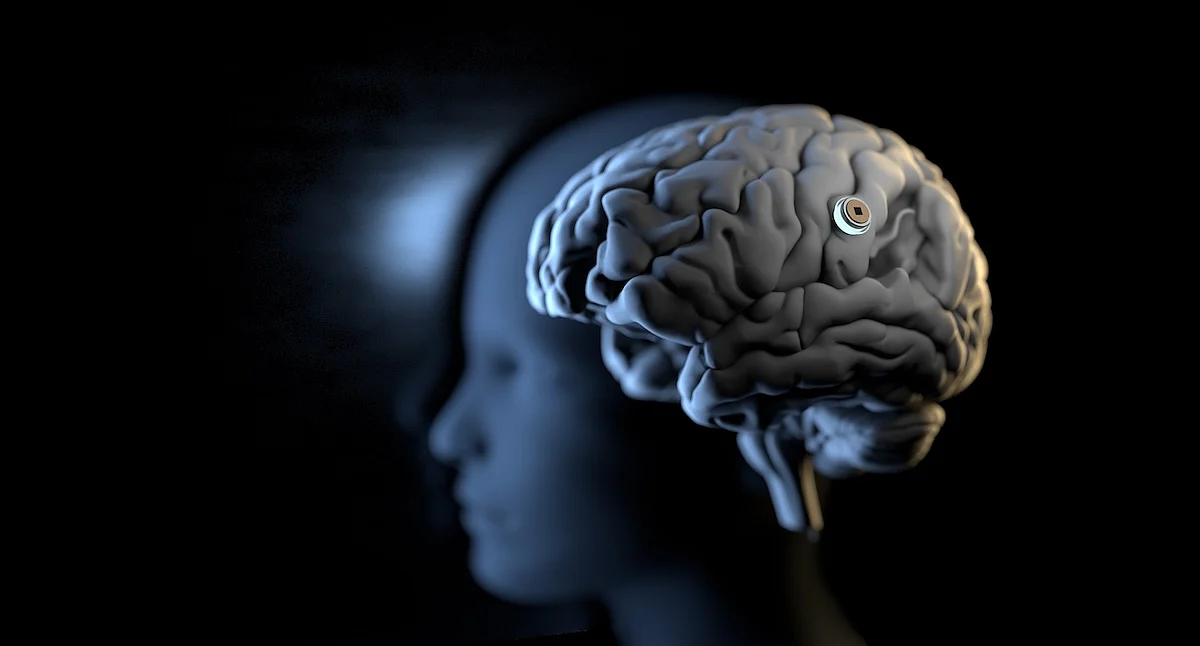

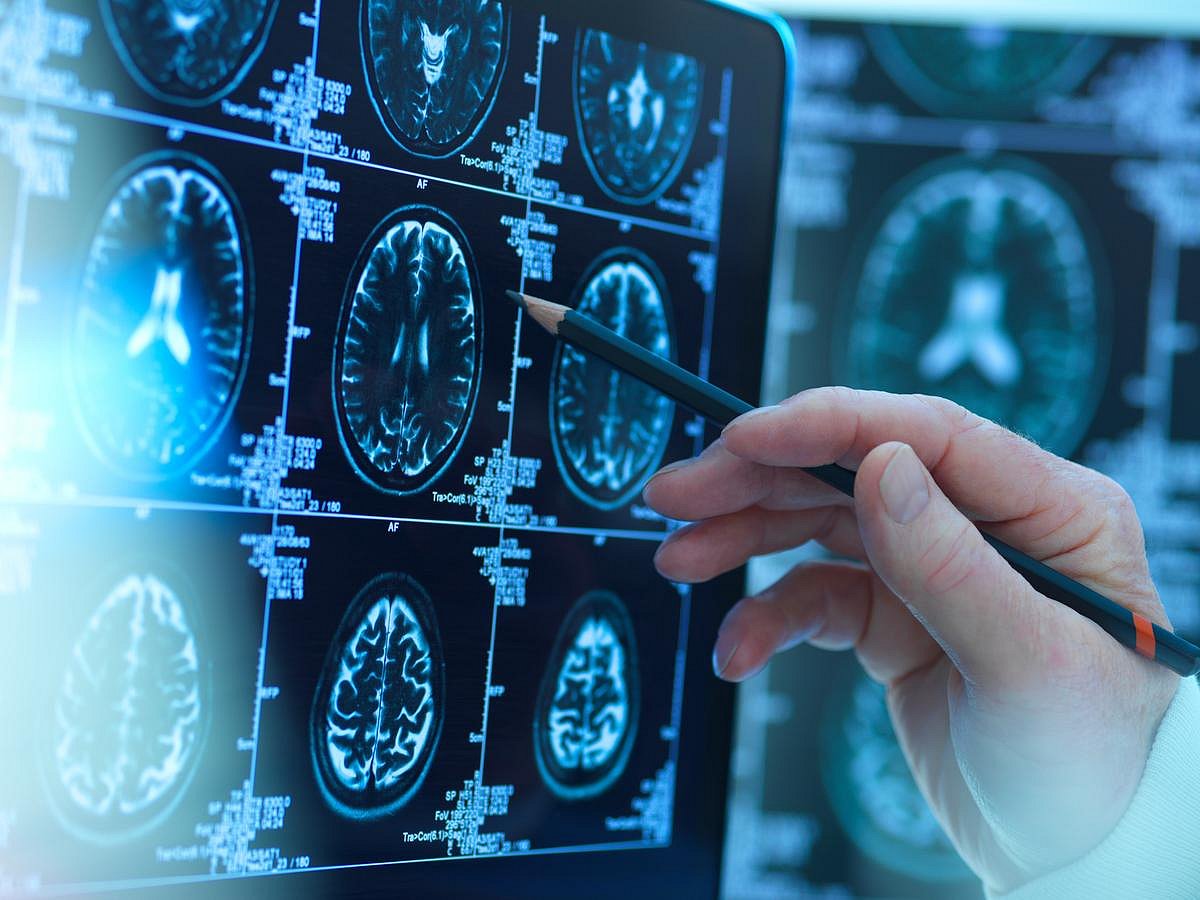



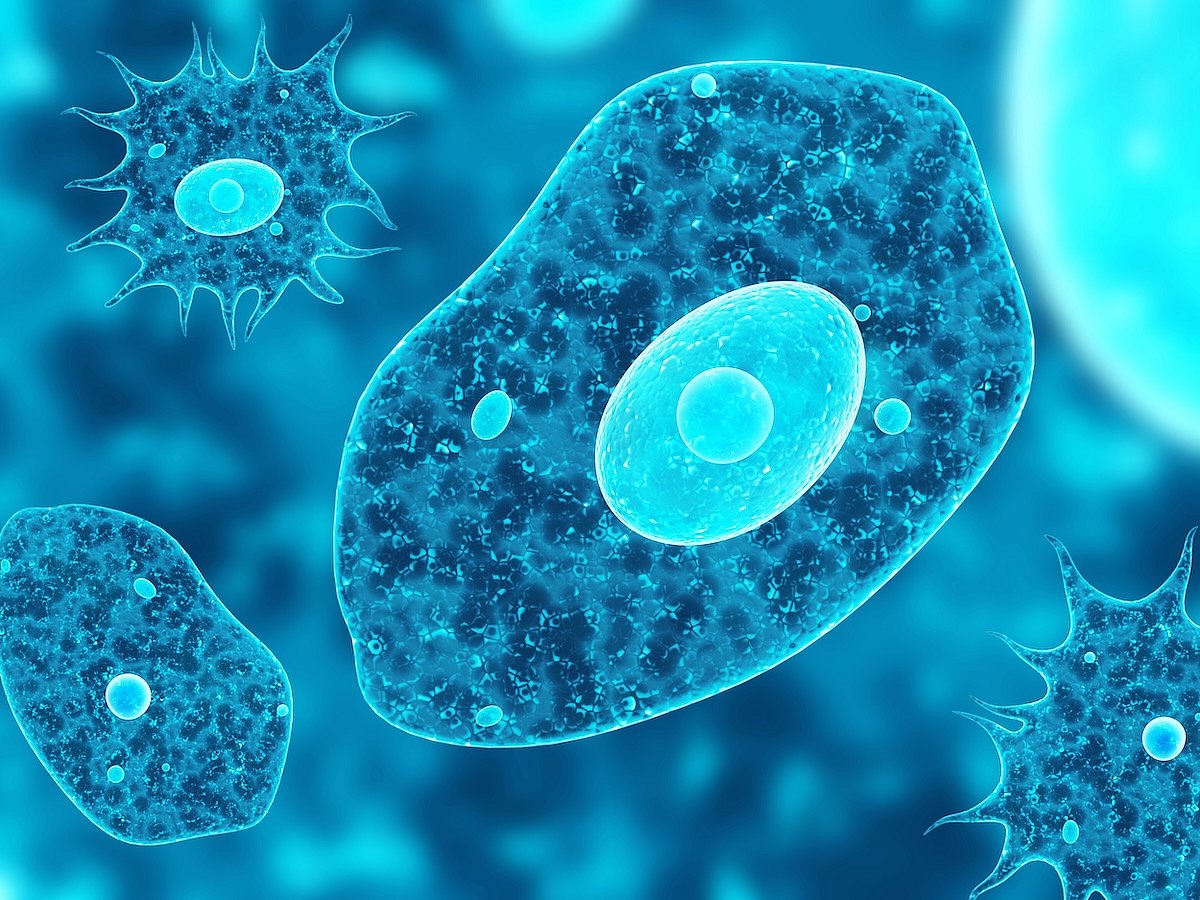
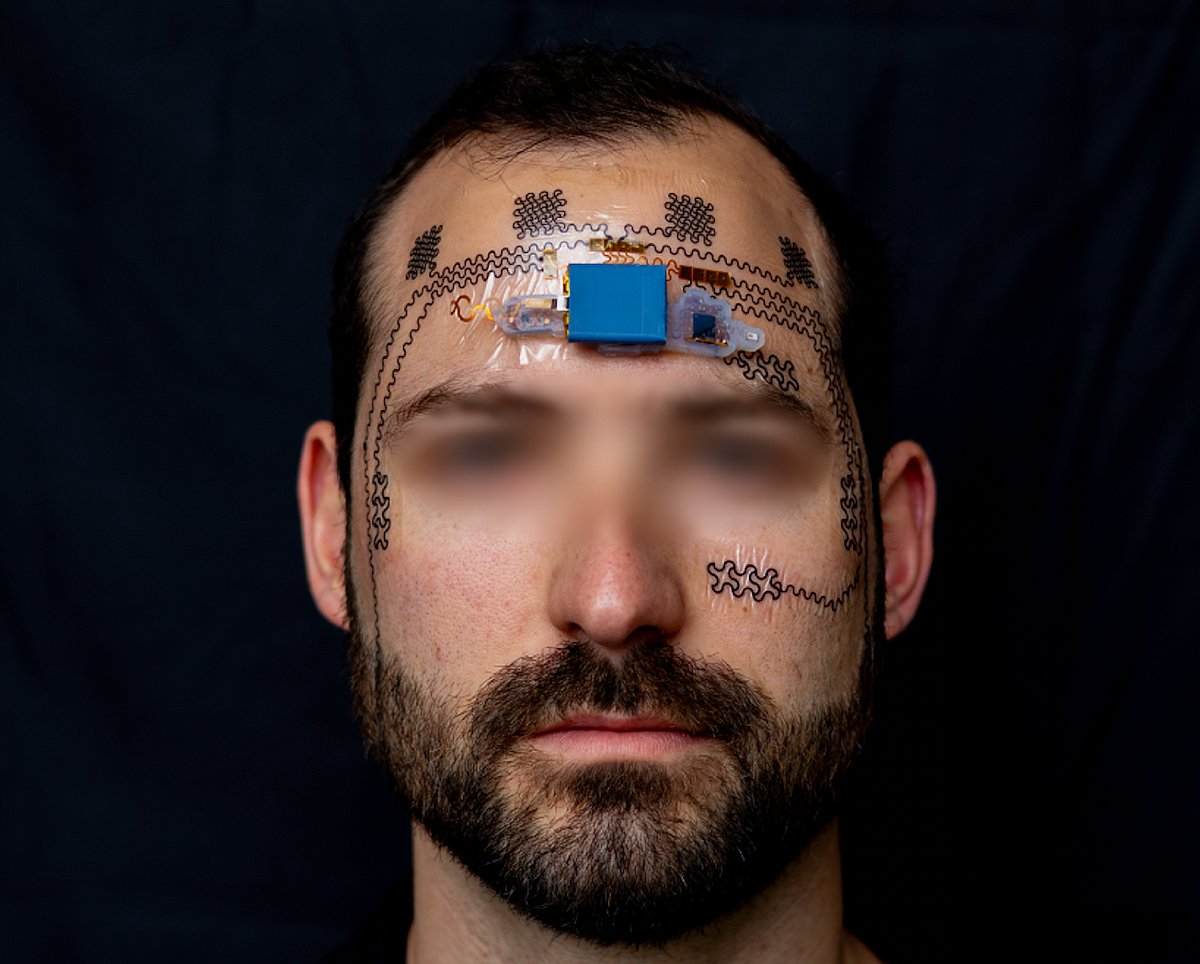






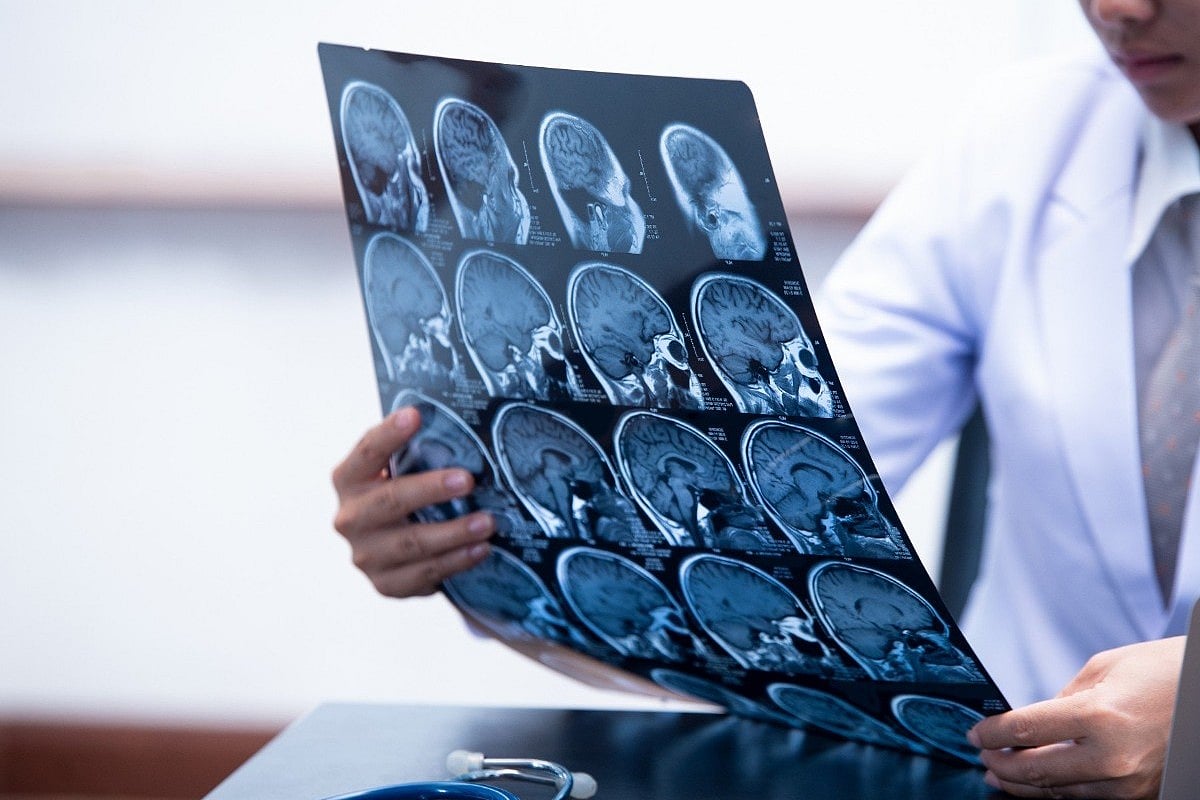

.jpg?w=1920&h=1080&mode=crop&crop=focalpoint)